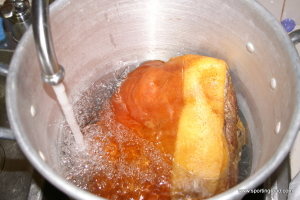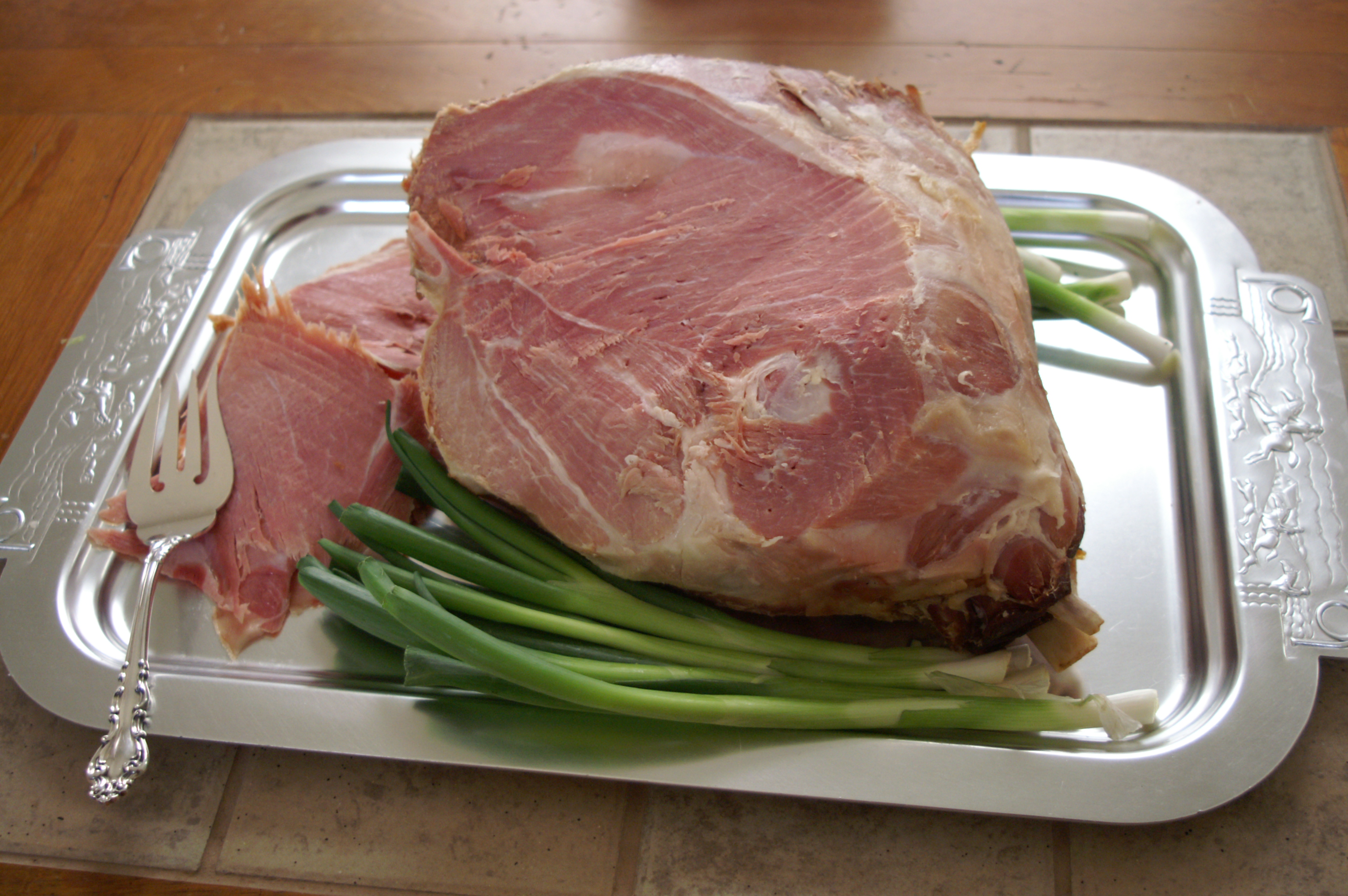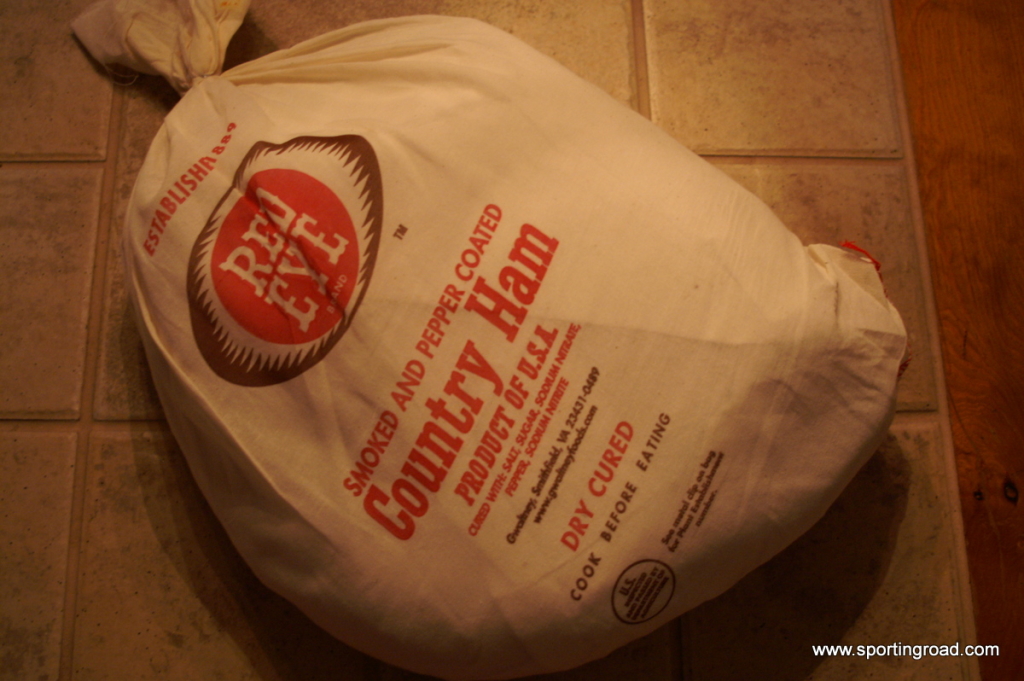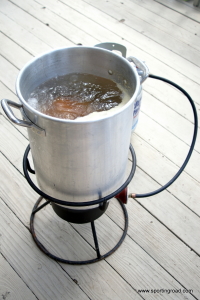Nothing is quite like a Smithfield Country ham. The Smithfield ham originated in the town of Smithfield in Isle of Wight County in the Hampton Roads region of Virginia. As early as 1926, a Statute of Virginia (passed by the Virginia General Assembly) first regulated the usage of the term “Smithfield Ham” by stating: Genuine Smithfield hams
The peanut feed stipulation was removed in 1966. The present statute specifies both process and method as follows:
…Genuine Smithfield hams are hereby defined to be hams processed, treated, smoked, aged, cured by the long-cure, dry salt method of cure; and, aged for a minimum period of six months; such six-month period to commence when the green pork cut is first introduced to dry salt, all such salting, processing, treating, smoking, curing, and aging to be done within the corporate limits of the town of Smithfield, Virginia
The specificity of the statute ensures that the product is not pre-processed anywhere else, and only finished in Virginia, or the town of Smithfield. The locality of the curing process also ensures a uniformity in flavor, since during the curing and aging process the local environment’s air quality, humidity, and the local varieties of airborne mold spores (whose enzymes are produced as a byproduct of growth on the ham’s rind) produce a unique and repeatable flavor.
In what was one of the largest takeovers of a U.S. company by a Chinese buyer, Smithfield Ham was bought out by Chinese meat producer Shuanghui International Holdings Wednesday. Shuanghui – China’s largest meat processor – paid $34 a share to purchase Smithfield, 31 percent above the company’s closing share price on Tuesday, according to a press release announcing the deal. The total purchase price is close to $5 billion.
Suggestions for Cooking an Old-Fashioned Favorite
To prepare ham:
Wash ham thoroughly in warm water. Use a stiff brush to remove surface mold if present. This mold is in no way injurious. Aged hams, like ages cheeses, mold in the process. To reduce saltiness, soak ham in cold water for 12-24 hours prior to cooking. Changing the water during soaking will aid in drawing salt from the ham. (If a milder salt flavor is desired, soak ham for 36 hours). Cook your ham using the Water or Oven cooking instructions listed below.
Water Cooking:
- Place ham skin side down in vessel and cover with cool water.
- Bring water to 190 F (simmering, not boiling).
- Cook approximately 25 minutes per pound or until 163 F internal temperature.
- Add water as needed to keep ham covered
- When done, take ham from vessel. While the ham is still warm, remove skin and fat as desired.
- If a sweet coating is desired, sprinkle the fat side with brown sugar and bread crumbs and bake in oven at 400 F until brown (approximately 15 minutes)



